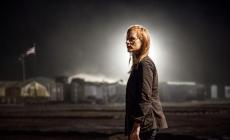I’m proud to have been quoted in the International Business Times regarding Academy Award winning film, “Zero Dark Thirty,” which used a telephone message from a victim of 9/11, seemingly without the consent of the victim’s grieving family.
Interesting article.
http://www.ibtimes.com/did-zero-dark-thirty-use-final-phone-call-911-victim-without-permission-1106130
And here’s my contribution to:
Whether or not Mary Fetchet [the victim’s grieving Mother] could bring a successful legal case against the filmmakers is hard to say, but legal options in situations such as this are tricky.
“Generally, U.S. copyright law protects ‘original works of authorship’ that are fixed in a tangible form of expression,†said Gano Lemoine, a Los Angeles-based entertainment attorney. “Copyright law typically does not protect ‘improvisational speeches’ that have not been written or recorded. It is possible that the recording of Bradley Fetchet’s phone call from the World Trade Center was a copyright-protectable work, which would allow the copyright holder to prohibit its use without permission.â€
But that right to prohibit use can be waived, Lemoine said, if the owner fails to take appropriate actions to preserve the copyright. In Fetchet’s case, the Daily News article noted that she “shared the
message in past scenarios, including with the 9/11 Commission.â€
“It may be that by providing her recording of her son’s message to government investigators and others, she may have unwittingly put the recording of her son into the public domain,†Lemoine added, “thereby losing any legal right to enjoin the filmmakers from using the audio, or otherwise seek damages.â€
Lemoine added that he sympathizes with Fetchet, and acknowledged that a legal analysis of her rights seems cold in light of her obvious — and understandable — emotional distress.


